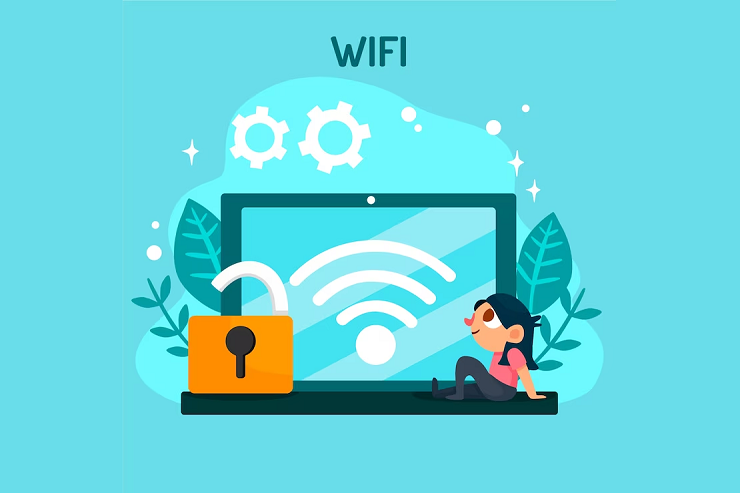
A strong and reliable internet connection is crucial for work and leisure in today’s digital age. Unfortunately, many households and businesses struggle with Wi-Fi dead zones, where the signal strength is weak or nonexistent. Two popular solutions have emerged to combat this issue: Wi-Fi extenders and Wi-Fi repeaters. This blog will explore these two technologies, compare their features and functionality, and help you determine the superior choice for improving Wi-Fi coverage.
Before delving into the comparison, let’s first understand the issue: Wi-Fi dead zones. These are areas in your home or office where the Wi-Fi signal is weak or fails to reach entirely. Dead zones can be frustrating, leading to buffering during online streaming, dropped video calls, and slow internet speeds. To address this problem, Wi-Fi extenders and Wi-Fi repeaters have been designed as affordable and practical solutions.
Wi-Fi Extenders: Boosting Signal Strength
Wi-Fi extenders, also known as range extenders or Wi-Fi boosters, are devices designed to extend the range of your existing Wi-Fi network. They work by receiving the signal from your router and then amplifying and rebroadcasting it, effectively increasing the coverage area. Here are some key characteristics of WiFi extenders:
Simple Setup
Wi-Fi extenders are relatively easy to set up, making them a user-friendly option for those with limited technical knowledge.
Extended Coverage
These devices can significantly extend the coverage area, making them suitable for larger homes or offices with multiple floors.
Signal Strength
Wi-Fi extenders excel at boosting signal strength, ensuring a strong connection even in areas far from the router.
Wired or Wireless
Some Wi-Fi extenders can be connected to the router via Ethernet cables, providing an even more stable connection.
Single SSID
Most extenders use a single SSID (Service Set Identifier), making it seamless for devices to connect as they move around the extended network.
Wi-Fi Repeaters: Repeating The Signal
Wi-Fi repeaters, or wireless repeaters or signal boosters, are another solution to address Wi-Fi dead zones. Instead of amplifying the existing signal, they capture it from your router and retransmit it, effectively repeating the Wi-Fi signal. Here are some critical characteristics of Wi-Fi repeaters:
Easy Setup
Like Wi-Fi extenders, repeaters are generally straightforward to set up, making them accessible to a wide range of users.
Signal Repetition
Repeaters create a new Wi-Fi network by repeating the existing one, often with a different SSID. You may need to switch between networks as you move around manually.
Moderate Coverage
While repeaters can extend coverage, their range may not be as extensive as Wi-Fi extenders, making them more suitable for smaller homes or offices.
Signal Degradation
Repeaters can sometimes cause signal degradation due to the additional “hop” they introduce, potentially leading to slower speeds.
Comparing Wi-Fi Extenders And Wi-Fi Repeaters
Now that we have a basic understanding of both Wi-Fi extenders and Wi-Fi repeaters let’s compare them based on several key factors:
Coverage Area
If you have a larger space with multiple rooms or floors to cover, Wi-Fi extenders are typically the better choice due to their ability to provide extensive coverage.
Signal Strength
Wi-Fi extenders are superior for areas with weak or intermittent signals. They excel at amplifying the signal, ensuring a strong connection throughout the extended area.
Ease of Use
Wi-Fi extenders and Wi-Fi repeaters are relatively easy to set up, but extenders often offer a more seamless experience since they maintain a single SSID.
Signal Quality
Wi-Fi extenders generally provide better signal quality as they amplify the original signal, whereas repeaters may introduce some signal degradation due to the repetition process.
Cost
Wi-Fi repeaters are often more budget-friendly than Wi-Fi extenders, making them an attractive option for those looking for an economical solution.
Compatibility
Check your existing router and network setup. Some routers may work better with one technology, so compatibility is essential.
Wired vs. Wireless
Some Wi-Fi extenders can be connected to the router via Ethernet cables if you prefer a wired connection for reliability. This option may not be available with Wi-Fi repeaters.
Choosing The Right Solution
Choosing between a Wi-Fi extender and a Wi-Fi repeater depends on your specific needs and circumstances. Here are some scenarios to help you make an informed decision:
You Need Extensive Coverage
If you have a large home, multiple floors, or numerous rooms to cover, opt for a Wi-Fi extender for its superior coverage capabilities.
Signal Strength Is A Priority
Wi-Fi extenders are the way to go when you require a strong and stable signal, especially for bandwidth-intensive tasks like online gaming or 4K streaming.
Budget Is A Concern
A Wi-Fi repeater may be a cost-effective solution if you’re on a tight budget and have a smaller space to cover.
Simplicity Is Key
If you value simplicity and don’t mind manually switching between networks around your space, Wi-Fi extenders and repeaters are suitable options.
Compatibility And Router Type
Consider your existing router and network setup; some routers may work better with one technology.
Conclusion
There is no one-size-fits-all answer in the battle of Wi-Fi extenders vs. Wi-Fi repeaters. Each technology has advantages and limitations, and the choice should be based on your requirements. Whether you prioritize extensive coverage, signal strength, cost-effectiveness, or simplicity, both Wi-Fi extenders and Wi-Fi repeaters offer viable solutions to eliminate Wi-Fi dead zones and provide a reliable internet connection throughout your space. Assess your needs carefully, consider the factors discussed in this blog, and make an informed decision to enhance your Wi-Fi experience.
